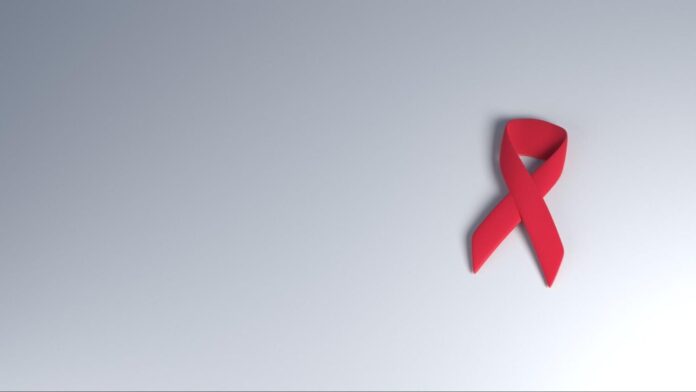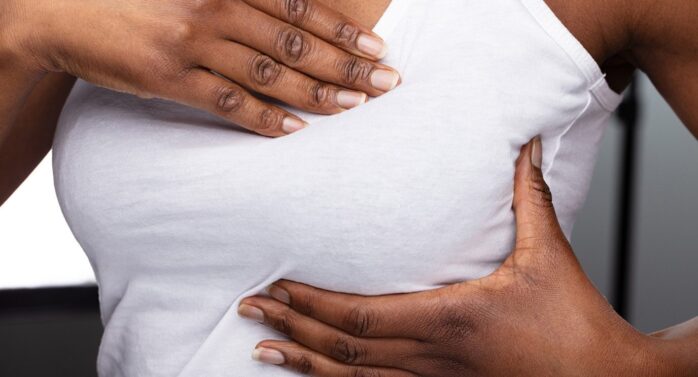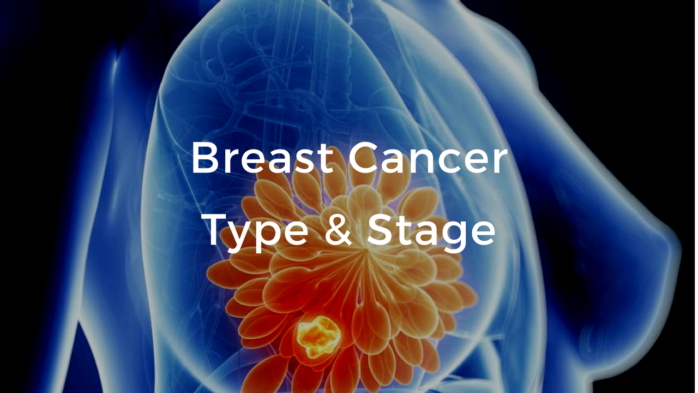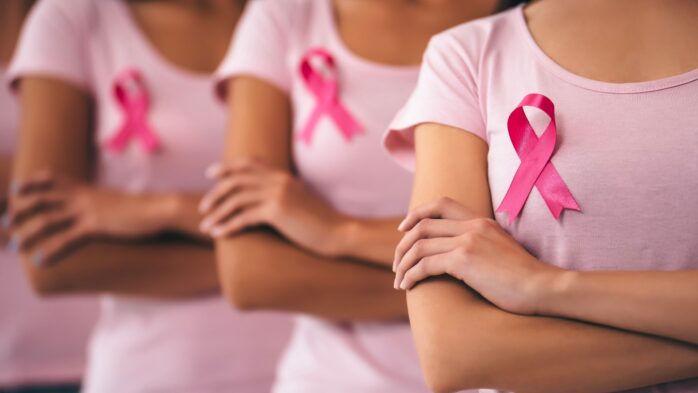
Breast cancer starts when abnormal cells in your breasts divide and multiply, but no experts can determine the core cause of breast cancer. In addition to that, several factors contribute to developing breast cancer mutations. These include:

- Age: The risk of breast cancer increases after fifty-five or older.
- Sex: Breast cancer is more common in women in comparison to men.
- Family history: If anyone in the first degree of relatives has breast cancer, there’s a high chance that you might have inherited it as well, and the symptoms might show up at any point in your life. According to some surveys, around five to ten percent of people diagnosed with breast cancer are due to abnormal genes passed down in the bloodline; Your healthcare provider can detect this through a genetic test for breast cancer.
- Smoking: Tobacco use has been linked to many cancers developing in the human body, including breast cancer.
- Alcoholism: Several research platforms suggest that having alcohol can increase the possibility of you getting exposed to cancer.
- Obesity: Obesity increases your chances of getting breast cancer and recurrence of breast cancer.
- Radiation exposure: If you have been involved with radiation therapy before, primarily targeted to your neck, head, or chest, there’s a high chance of developing breast cancer.
- Hormone replacement procedure: People who get hormone replacement surgery are more likely to be exposed to breast cancer.
Apart from all this, many other factors can increase the risk of developing breast cancer, so it’s best to speak to your healthcare provider regarding it.
Types of breast cancer:

Breast cancer can be divided into several branches, including:
- Infiltrating ductal carcinoma: This begins within the milk ducts of your breasts; it breaks through the wall of your duct and spreads in the areas surrounding your breast tissue; This is one of the most common types of breast cancer.
- Ductal carcinoma in situ: This is stage zero of breast cancer; ductal carcinoma in situ is known to be precancerous as these cancerous cells haven’t spread outside your ducts; this type of cancer is considerably more treatable if required care has been given out from the start.
- Infiltrating (invasive) lobular carcinoma: This type of cancer is created within the breast’s lobules, where milk production occurs and spreads around to other parts of your breast tissues.
- Triple-negative breast cancer is one of the most challenging types of cancer to treat; it’s called triple-negative as it doesn’t have three of the markers associated with other types of breast cancer.
- Inflammatory breast cancer: This is a rare type of breast cancer that is like an infection, with symptoms involving redness, swelling, pitting, and dimpling of the breast skin.
Conclusion:

To prevent breast cancer, doctors recommend getting tested annually to check for any mutations growing within your breast. Breast cancer testing is often suggested after the age of forty; however, if you feel any changes within your breast during a self-examination, it is best to consult your healthcare provider; if breast cancer is detected, you may have to manage the disease alongside your healthcare provider to discuss the best treatment options.





